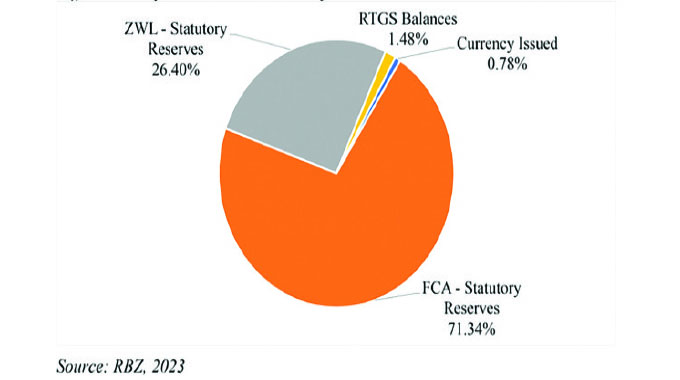Zim exporters can tap UK, Ghana markets

Oliver Kazunga-Senior Business Reporter
ZIMBABWEAN exporters should take advantage of national trade promotion and development body, ZimTrade’s, trade missions to diversify exports into the United Kingdom (UK) and Ghana as well as unlock opportunities in the wider African Continental Free Trade Area (AfCFTA).
ZimTrade chief executive officer Mr Allan Majuru said this in a speech read on his behalf by the agency’s operations director Mr Similo Nkala during a UK and Ghana market survey dissemination seminar in Harare on Tuesday.
Zimbabwe’s national trade development and promotion organisation conducted the survey in the two markets in May this year.
Mr Majuru said the UK has traditionally been a significant trade partner of Zimbabwe and at one point was ranked among the top five export destinations for Zimbabwe.
He said though the UK market was being held back by uncertainty following its exit from the European Union, the economy was in a recovery mode after posting growth of 4,5 percent in 2021 while it is projected to have grown by a further 4,7 percent last year.
“The UK is heavily dependent on imports for most of its products and the market survey that was conducted by our team aimed to gather information on what type of produce Zimbabwe can export to that country following the signing of the Economic Partnership Agreement.
“Historically, we all know that the UK was a traditional trading partner for Zimbabwe where we exported a wide range of products.
“At one time, the UK was among the top five export markets for Zimbabwe,” said Mr Majuru, adding that the UK market was heavily dependent on imports for most of its products and the market survey that was gathered by the agency aimed to gather more information on what type of products Zimbabwe can export to that country.
This follows an Economic Partnership Agreement signed between Zimbabwe and the UK some years ago to promote increased trade and investment and in turn contribute to sustainable growth in the country.
According to Trade Map, Zimbabwe’s exports to the UK in 2021 stood at US$14 million with major exports consisting of minerals and fresh produce.
“However, there is potential for diversification and supply of products such as essential oils, value-added products such as dried fruits as well as arts and crafts.
“In our endeavour to diversify our exports markets as well as take advantage of the AfCFTA, this year we targeted the Ghana market, which is in West Africa (a first for us to explore this region).
“The market is a non-traditional market for Zimbabwe as we have not traded with each other in any meaningful way.
“We hope this initiative will assist us to improve the trade figures between our two countries which currently are miniscule.”
Mr Majuru said Zimbabwe’s exports to Ghana have been low, averaging below US$10 000 for the past five years while imports averaged just over US$500 000 per annum.
The ZimTrade boss said such a scenario presented Zimbabwe with a challenge to take the bilateral trade relations between the two countries to another level.
“Our plan is that as we penetrate the Ghanaian market, it will be a springboard into other West Africa countries using the AfCFTA trade agreement. Buyers in these markets don’t know much about some of our brands, therefore, we need to invest a lot in terms of brand development. This should be both at company level and us as your trade promotion organisation investing into the promotion of our brands as a nation,” he said.
In separate interviews, some of the participants at the seminar said they found the event useful as it provided information on new markets.
Rukanda Pride sales and marketing executive Ms Tryphine Mugasa whose company is in leather products manufacturing said: “The market dissemination seminar was very useful because we were able to identify markets like Ghana. “We didn’t know about Ghana that much, so now as we go back to our workplaces we will be able to find marketing strategies to penetrate the Ghana market. We will also be able to identify the opportunities that we have in the local market.
“We also learnt that never take ‘no’ for an answer when you are in business and thus we should look for opportunities to diversify our exports into new markets such as the Ghanaian market that has been presented to us today.”
After the dissemination seminar on UK and Ghana markets, she said her company would consider diversifying their products to manufacture corporate ware targeting markets in Ghana. An official from Tramarock Investments director of operations Engineer Nelisiwe Karara said her organisation has been exporting oyster mushrooms to Zambia, Namibia and Botswana but through the UK and Ghana market dissemination seminar, they were now eyeing the European market.
“We have been exporting oyster mushrooms to Zambia, Namibia and Botswana and from here we are looking at bigger things, we want to penetrate the European market,” she said.








Comments